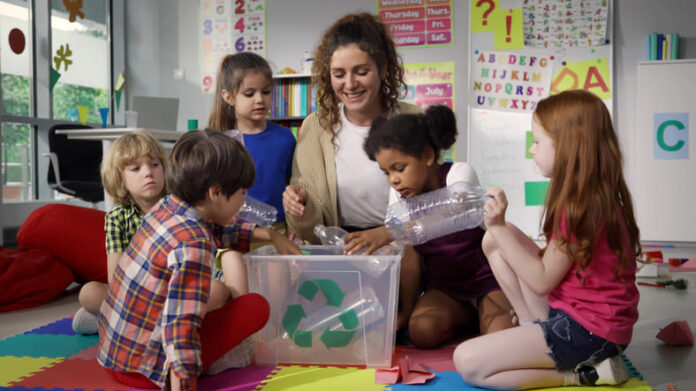Sustainability is becoming an increasingly important issue. Teaching children about sustainability from a young age is vital to raising a generation of environmentally conscious citizens who can help build a more sustainable future. This article will explore why it is so important that all children, both biological and foster, are taught about sustainability and the measures parents and schools can take to provide children with a strong foundation in this area.
Why Children Should Learn About Sustainability
There are several key reasons why it is crucial to teach children about sustainability and environmental issues from an early age. Firstly, habits and mindsets established in childhood tend to persist into adulthood. Teaching children sustainable behaviours like recycling, energy conservation, and ethical consumerism means they are more likely to retain these habits as adults. Additionally, children taught about sustainability concepts like climate change and finite resources will grow up with an awareness of environmental challenges and a passion to address them.
Secondly, today’s children may feel the effects of environmental problems such as, pollution, biodiversity loss, and resource depletion. Therefore, equipping them with knowledge of sustainability is preparing them for the world they will live in. They will require this knowledge to creatively solve sustainability issues in their future roles as residents, workers, and leaders.
Finally, children are inherently curious about the natural world and eager to help. Teaching them about sustainability taps into their natural interests and desire to have a positive impact. Children taught about sustainability often enthusiastically apply what they have learned by initiating recycling programmes at school, conserving energy at home, and raising environmental awareness amongst their peers.
The Role of Parents
Parents and carers who foster with agencies like the Foster Care Associates Scotland have a significant role to play in teaching their children about sustainability. There are many simple yet impactful ways parents can teach sustainability values and behaviours at home.
Leading by example is the most effective way for parents to impart knowledge and habits to their children. Children are observant and tend to mimic their parents’ behaviour. Parents who consistently demonstrate sustainable actions like recycling, gardening, using public transport, and buying eco-friendly products will implicitly teach their children to live sustainably, too. Explicitly involving children in these activities further reinforces the lesson.
The Role of Schools
While parents play a central role, to most effectively teach all children about sustainability requires the school system to be involved. Education for sustainability needs to be incorporated into both the school curriculum and culture.
In the curriculum, sustainability concepts and issues can be taught across many subject areas in an interdisciplinary way. Science, geography, mathematics, design technology, and social studies all provide opportunities to cover topics like renewable energy, ecology, ethical consumerism, and the societal shifts needed for sustainability. Schools can also arrange experiential learning activities like field trips to nature reserves, green technology sites, and ethical farms.
Teaching the next generation about sustainability is one of the most important things we can do to work towards a sustainable future. All children have the right to learn about taking care of our planet and our collective responsibility to live sustainably.





























![“Does Everyone Hear Me OK?”: How to Lead Virtual Teams Effectively iStock-1438575049 (1) [Converted]](https://www.europeanbusinessreview.com/wp-content/uploads/2024/11/iStock-1438575049-1-Converted-100x70.jpg)




